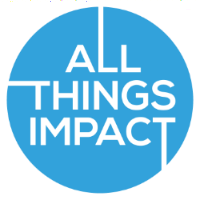Hi there. My name is Brian Walsh, and I seek to understand the deeper connections and surprising forces in how private capital impacts our common good.
About me
I run Liquidnet For Good, the social impact arm of the fintech company Liquidnet. (Disclaimer: All Things Impact is a completely personal project and nothing I write necessarily reflects the views of my employer or other professional associations.)
As head of impact, I create opportunities for Liquidnet employees around the world to engage in giving back; apply Liquidnet’s capital markets expertise to bring better data and feedback loops to the practice of philanthropy; and chair the investment committee for Liquidnet’s early-stage venture capital fund, making investments in companies accelerating the practice of impact investing.
I serve as Vice Chair of the Board of GlobalGiving, the largest nonprofit crowdfunding platform; Chair of the Board of CALSO, a nonprofit launching social enterprises to fight social exclusion; Board member of the Agahozo-Shalom Youth Village (ASYV), Liquidnet's charitable partner in Rwanda; and serve on the Advisory Council for the Charlize Theron Africa Outreach Project. I co-host the Returns on Investing podcast for ImpactAlpha and teach a graduate seminar on financing social impact as an adjunct professor at the Walsh School of Foreign Service at Georgetown University.
- Connect with me on LinkedIn
- Follow me on Twitter
- Contact me
About this project
In the previous incarnation of this newsletter, I curated content around different approaches to financing social good, “across the spectrum of impact: effective philanthropy, impact investing (in the private markets), responsible investing (in the public markets), plus a wildcard topic.”
While I will certainly continue to cover these areas, in this relaunch (starting with No. 56), I aim to share insights that reveal the deeper connections and surprising forces in how private capital impacts our common good.
Things like:
- Risks, returns, and impact
- Equity, diversity, inclusion. and justice
- Talent, opportunity, potential, and luck
- Work, dignity, automation, and purpose
- Norms, values, institutions, and civil society
- Breadth, depth, scale, individuals, and systems
- Screening, alignment, exclusion, and integration
- Profit, product, process, people, place, and planet
- Divestment, investment, engagement, and boycotts
- Arts, culture, design, technology, and representation
- Sustainability, responsibility, liberty, and accountability
- Networks, platforms, aggregators, and distributed ledgers
- Self, family, tribe, community, nation, us, them, and identity
- Conservation, consumption, carbon, climate, and contagion
- Environmental, social, and governance (ESG) considerations
- Information, trust, authority, knowledge, attention, and clicks
- Inputs, activities, outputs, outcomes, and evidence of impact
- Taxes, regulations, incentives, subsidies, tariffs, and sanctions
- Demography, destiny, demagoguery, populism, and distraction
- Staying afloat, getting ahead, falling behind, and status anxiety
- Fiduciary duty, shareholder value, externalities, and materiality
- Supply, demand, scarcity, abundance, preferences, and choices
- Growth, stagnation, prosperity, poverty, polarization, and decline
- Incentives, intentionality, additionality, attribution, and contribution
- Concessions, trade offs, benchmarks, valuation, and performance
- Autonomy, collective action, private property, and public commons
- Strategy, business models, supply chains, distribution, and disruption
- Race, gender, class, voice, agency, unconscious bias, privilege, and power
- Artificial intelligence, natural intelligence, machine learning, and human insights
- Users, community members, customers, constituents, beneficiaries, and citizens
- Innovation, resource allocation, optimization, entitlements, and wealth distribution
- Listening, feedback loops, learning, monitoring, evaluation, and capacity-building
- Social capital, social networks, access to finance, and social determinants of health
- Democracy, oligarchy, meritocracy, technocracy, aristocracy, legitimacy, and control
- Global North, Global South, community-driven, development, aid, and global citizens
- Data, metrics, indicators, standards, audits, reporting, storytelling, and decision making
- Investment thesis, theory of change, logic model, financial model, and conceptual frameworks
About the audience
Most people on who receive this email newsletter are friends and colleagues I’ve engaged with over the years (or people I met briefly at an event or who were forwarded this email by someone else). They work at a range of organizations across the public, private, and social sectors. Among their ranks are entrepreneurs & intrapreneurs, presidents & interns, investors & philanthropists, policy maker & practitioners, researchers & advocates, and students & professionals.
Though their sectors, scope, employers, and geographies differ, they tend to share an orientation towards improving the common good. While “impact” means different things to different people, gaining insights from a variety of fields and perspectives better connects the dots between the ideas, initiatives, and innovations that are interacting to both benefit and harm people, communities, and the planet.
